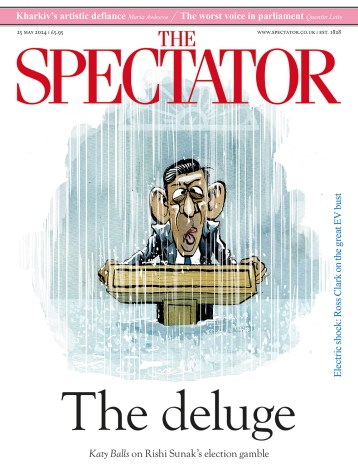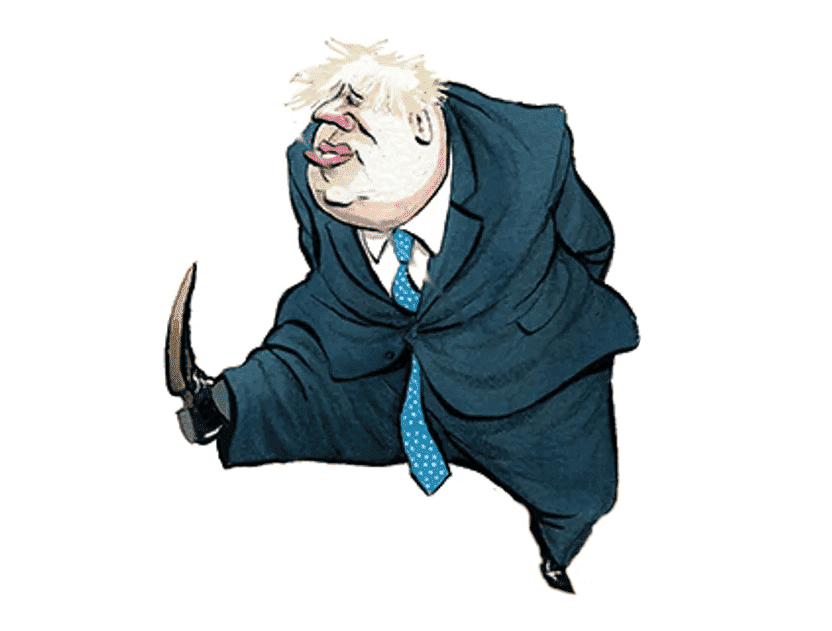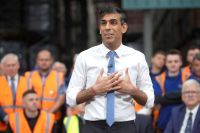It would obviously be ridiculous for the Conservatives to dump Liz Truss after just a few weeks and seek to re-install Boris Johnson as prime minister. To do such a thing would be akin to what the producers of the 1980s TV series Dallas did after realising they had made a horrendous mistake by killing off Bobby Ewing: writing a script for the next series in which the assassination was depicted as a dream had by his wife Pam.
The Tories would be asking the British electorate, in effect, to observe Boris walking out of the shower, into his luxuriantly wallpapered boudoir and telling a dumbstruck Carrie: ‘I’ve got to go and talk to Rishi about the economy. I say, are you OK? You look like you’ve seen a ghost.’
Totally ridiculous, credibility-shredding, shark-jumping stuff. And yet, suddenly not necessarily a worse option than sticking with Truss.
The polls are comparable with the dog days of Theresa May
Despite the new premier’s perfectly serviceable conference speech, the catastrophic political damage brought about by the mini-Budget appears to be lasting. By making such a radical economic intervention just as interest rates on mortgages were about to rise, Truss and Chancellor Kwasi Kwarteng have ensured they are going to be blamed for that spike by mortgaged-to-the-hilt swing voters. Silver surfers relying on final salary pensions are now keenly aware that it took a rescue operation by the Bank of England to save them from disaster too.
To propose cutting top rate tax at such a time also defined Truss and Kwarteng as obsessive believers in an economic approach miles from that desired by the Red Wall voters who backed Johnson in 2019. It also completely overshadowed their much more Red Wall-friendly energy subsidy package. To then U-turn on that tax cut further shredded their credibility.
Far too many people are now positioning themselves on the wrong side of the new dividing line which was supposed to serve Truss well: supporters of her policies against members of the so-called anti-growth coalition. Mortgage-holders, occupational pensioners, well-heeled southern Tories who don’t want new housing estates to spring up on their greenfield views, Red Wallers who thought they’d voted for social democratic economics – Truss has united them all against her. If the anti-growth coalition started to field parliamentary candidates it would surely win most ensuing by-elections by a landslide.
How different it seems from the ‘arms around the nation’ approach of Johnson and Sunak when Covid hit. And yet given that the intervention on energy bills was by far the biggest policy in Kwarteng’s ‘fiscal event’, this popularity-shredding impression relies far more on perception than reality.
But look at the polls. The latest one has Labour on 52 per cent and the Tories on 20 – comparable with the dog days of Theresa May, though at least her bleed out of votes was to the pop-up Brexit party rather than the main opposition.
On economic competence, the bedrock traditional Tory advantage, the picture is if anything more grim still. A year ago the Tories were out of sight in the lead. Now polling from Redfield & Wilton Strategies shows Labour 23 points ahead.
The Politico poll of polls further illustrates the carnage that has occurred. Throughout the Partygate controversies Labour was seldom more than eight points ahead – no great shakes in mid-term – before hitting an average lead of ten points when Johnson was toppled by his own MPs. With Truss in office that average lead is 23 points.
One cannot say for certain that there is no coming back from this. But to revive her fortunes, Truss would need to be able to rely on a solid esprit de corps among her parliamentary party to see her through the testing times ahead. Yet only 50 Conservative MPs chose her when the leadership contest got to the first round ballot. More than 300 had a different idea about who should be the next PM and the vast majority of them will be thinking they were right to have done so.
A big external event, such as Putin falling after being routed in Ukraine would be ideal for Truss. Something this dramatic could potentially move the dial in her favour. But some visible domestic political successes are essential in the short-term. It is hard to conceive what they might be.
So there is at least a fifty-fifty chance of the plug being pulled by the 1922 Committee and a truncated contest to replace her being arranged within the next six months or so. Could Boris Johnson stand in and win such a contest with a Commons Privileges Committee inquiry still hanging over him? Could he then invite Sunak to take up the reins at the Treasury again in the national interest? That would all be quite ridiculous. So of course he could.









Comments
A blooming good offer
Join the conversation with other Spectator readers by getting the next 3 months for £3.
CLAIM OFFER 3 months for £3Already a subscriber? Log in